armed forces
Trump admin reveals the federal government awarded over $100 million in contracts to Reuters
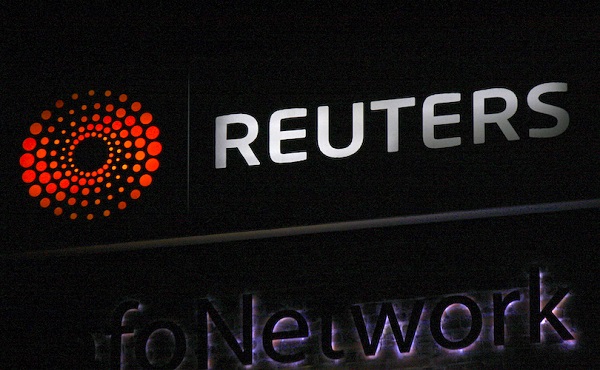
From LifeSiteNews
The Pentagon gave $9 million to Reuters for program called ‘large scale social deception’
President Donald Trump highlighted this morning the finding that the Department of Defense (DOD) paid the leftist media outlet Reuters $9 million for a program labeled “large scale social deception,” and he has demanded that they return the money.
“DOGE: Looks like Radical Left Reuters was paid $9,000,000 by the Department of Defense to study ‘large scale social deception.’ GIVE BACK THE MONEY, NOW!” wrote Trump on Truth Social.
Late Wednesday evening, Elon Musk shared a screenshot from USAspending.gov showing that the Department of Defense had indeed dispersed an award to Thomson Reuters Special Services LLC, the parent company of the media group Reuters, for a project labeled “active social engineering defense”(ASED) and “large scale social deception.”
Reuters was paid millions of dollars by the US government for “large scale social deception”.
That is literally what it says on the purchase order! They’re a total scam.
Just wow. https://t.co/GGxoVQSwN8
— Elon Musk (@elonmusk) February 13, 2025
A perusal of USAspending.gov shows that the U.S. government has awarded over $100 million in contracts to Reuters and confirms that the DOD awarded Reuters $9,147,532 under the “description” label ASED and “large scale social deception,” for a time period from 2018 to 2022, part of the period of Trump’s first term.
For comparison, other government contracts to Reuters include the DOD’s awarding of over $12 million under the description “mass effect,” the DHS awarding $5.1 million for “data analysis,” and the Department of Justice (DOJ) giving a few million for “risk mitigation services.”
A more detailed overview of the contract on highergov.com shows the description “SIMULATION TESTING AND MEASUREMENT LARGE SCALE DECEPTION” but does not further expand upon the activities the award intends to fund.
Most of those who commented on Musk’s X post blasted the finding as a straightforward exposure of government deception. One commentator questioned whether the description was purportedly meant to signify defense against “social deception,” as the contract description signified defense against social engineering.
Others pointed out that deception is a standard part of psychological operations, as admitted in an Army field manual, No. 3-13.4, “Army Support to Military Deception”:
Military deception is actions executed to deliberately mislead adversary military, paramilitary, or violent extremist organization decision makers, thereby causing the adversary to take specific actions (or inactions) that will contribute to the accomplishment of the friendly mission. Deception applies to all levels of warfare, across the range of military operations, and is conducted during all phases of military operations. When properly integrated with operations security and other information-related capabilities, deception can be a decisive tool in altering how the enemy views, analyzes, decides, and acts in response to friendly military operations.
Some commentators highlighted the fact that the Central Intelligence Agency (CIA) has used American news media for propaganda purposes, most notably in a project known as “Operation Mockingbird.” At the time, the CIA admittedly hired at least 400 journalists to serve its aims, in part by writing “fake stories,” according to the journalist who exposed the scandal in 1977.
Stunningly, despite the millions it receives in government contracts, Reuters claims to be an “independent” and “stateless” news organization. It states on its website:
Independence is the essence of our reputation as a “stateless” global news organisation and fundamental to the trust that allows us to report impartially from all sides of a conflict or dispute. It is crucial to our ability to report on companies, institutions and individuals in the financial markets, many of whom are also our customers, without regard for anything other than accuracy, balance and the truth. Our independence stems not only from the structure of Reuters but also from our duty as journalists to avoid conflicts of interest or situations that could give rise to a perception of a conflict.
armed forces
Yet another struggling soldier says Veteran Affairs Canada offered him euthanasia

From LifeSiteNews
‘It made me wonder, were they really there to help us, or slowly groom us to say ‘here’s a solution, just kill yourself.’
Yet another Canadian combat veteran has come forward to reveal that when he sought help, he was instead offered euthanasia.
David Baltzer, who served two tours in Afghanistan with the Princess Patricia’s Canadian Light Infantry, revealed to the Toronto Sun that he was offered euthanasia on December 23, 2019—making him, as the Sun noted, “among the first Canadian soldiers offered therapeutic suicide by the federal government.”
Baltzer had been having a disagreement with his existing caseworker, when assisted suicide was brought up in in call with a different agent from Veteran Affairs Canada.
“It made me wonder, were they really there to help us, or slowly groom us to say ‘here’s a solution, just kill yourself,” Baltzer told the Sun.“I was in my lowest down point, it was just before Christmas. He says to me, ‘I would like to make a suggestion for you. Keep an open mind, think about it, you’ve tried all this and nothing seems to be working, but have you thought about medical-assisted suicide?’”
Baltzer was stunned. “It just seems to me that they just want us to be like ‘f–k this, I give up, this sucks, I’d rather just take my own life,’” he said. “That’s how I honestly felt.”
Baltzer, who is from St. Catharines, Ontario, joined up at age 17, and moved to Manitoba to join the Princess Patricia’s Canadian Light Infantry, one of Canada’s elite units. He headed to Afghanistan in 2006. The Sun noted that he “was among Canada’s first troops deployed to Afghanistan as part Operation Athena, where he served two tours and saw plenty of combat.”
“We went out on long-range patrols trying to find the Taliban, and that’s exactly what we did,” Baltzer said. “The best way I can describe it, it was like Black Hawk Down — all of the sudden the s–t hit the fan and I was like ‘wow, we’re fighting, who would have thought? Canada hasn’t fought like this since the Korean War.”
After returning from Afghanistan, Baltzer says he was offered counselling by Veteran Affairs Canada, but it “was of little help,” and he began to self-medicate for his trauma through substance abuse (he noted that he is, thankfully, doing well today). Baltzer’s story is part of a growing scandal. As the Sun reported:
A key figure shedding light on the VAC MAID scandal was CAF veteran Mark Meincke, whose trauma-recovery podcast Operation Tango Romeo broke the story. ‘Veterans, especially combat veterans, usually don’t reach out for help until like a year longer than they should’ve,’ Meincke said, telling the Sun he waited over two decades before seeking help.
‘We’re desperate by the time we put our hands up for help. Offering MAID is like throwing a cinderblock instead of a life preserver.’ Meincke said Baltzer’s story shoots down VAC’s assertions blaming one caseworker for offering MAID to veterans, and suggests the problem is far more serious than some rogue public servant.
‘It had to have been policy. because it’s just too many people in too many provinces,” Meincke told the Sun. “Every province has service agents from that province.’
Veterans Affairs Canada claimed in 2022 that between four and 20 veterans had been offered assisted suicide; Meincke “personally knows of five, and said the actual number’s likely close to 20.” In a previous investigation, VAC claimed that only one caseworker was responsible—at least for the four confirmed cases—and that the person “was lo longer employed with VAC.” Baltzer says VAC should have military vets as caseworkers, rather than civilians who can’t understand what vets have been through.
To date, no federal party leader has referenced Canada’s ongoing euthanasia scandals during the 2025 election campaign.
armed forces
Canada’s Military is Collapsing. Without Urgent Action, We Won’t Be Able To Defend Ourselves
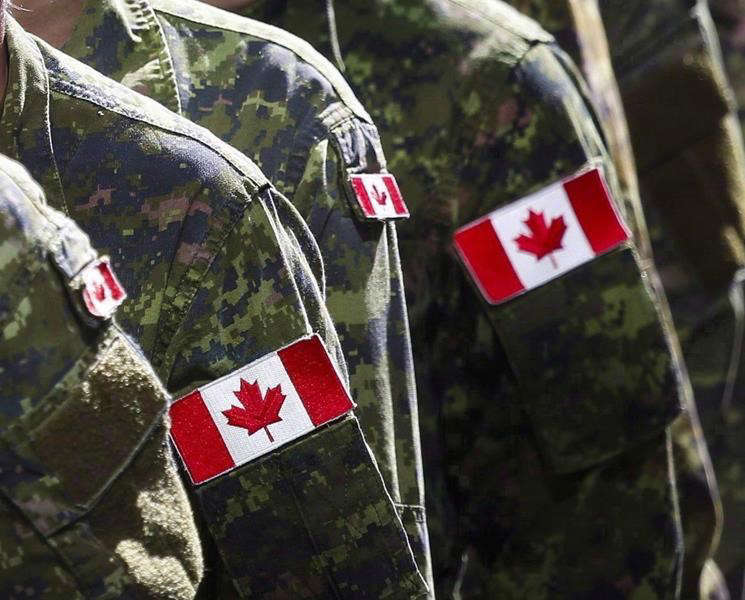
From the Frontier Centre for Public Policy
By David Leis
Decades of underfunding and political neglect have left our military weak and unprepared
What Lt.-Gen (retired) Michel Maisonneuve (ret.) told me about Canada’s military was nothing short of alarming. He didn’t mince words—our armed forces are in dire straits. If we don’t act now, Canada will not only be unable to defend itself, but it will cease to be taken seriously by our allies, many of whom are already losing patience with our military decline.
Maisonneuve has seen firsthand what a functioning military looks like. He has served at the highest levels, working alongside our allies in NATO, and he knows exactly what Canada is failing to do. “We are no longer at the table when major defence decisions are made,” he told me. “The Americans don’t ask us what we think anymore because they know we can’t contribute.” That is a stunning indictment of where we now stand—a country that was once respected for its ability to punch above its weight militarily has been reduced to an afterthought.
The problem, as Maisonneuve laid out, is both simple and staggering: Canada doesn’t take its defence seriously anymore. The government has allowed our forces to wither. The Air Force is still buying CF-18s from the 1980s because the long-delayed F-35 procurement is years behind schedule. The Navy, once a competent maritime force, is barely functional, with no operational submarines and a fleet that is nowhere near what is needed to patrol our vast coastlines.
Meanwhile, the Army is struggling to recruit and retain soldiers, leaving its numbers dangerously low. “We have an Army in name only,” Maisonneuve said. “If we were called upon tomorrow to deploy a fully operational combat force, we couldn’t do it.”
Even more shocking is the state of readiness of our troops. A recent report found that 75 per cent of Canadian military personnel are overweight. Maisonneuve didn’t sugarcoat it:
“It’s unacceptable. We are supposed to be training warriors, not watching fitness standards collapse.” When the people entrusted with defending our country are struggling with basic physical fitness, it speaks to something much deeper—an institutional rot that has infected the entire system. Our allies have noticed. Canada was locked out of AUKUS, the military alliance between the U.S., the U.K. and Australia. “It wasn’t an oversight,” Maisonneuve explained. “It was a deliberate snub. The Americans don’t see us as a serious defence partner anymore.” That snub should have been a wake-up call. Instead, our government shrugged it off.
Meanwhile, Washington is openly questioning Canada’s value in NATO. The Americans see the numbers—Canada refuses to meet even the minimum defence spending requirement of two per cent of GDP. Instead of fulfilling our obligations, we offer up empty promises and expect others to pick up the slack.
Maisonneuve is blunt about what needs to be done. “First, we need to fully fund the military—and that means not just hitting the NATO target but exceeding it. Our allies spend real money on their defence because they understand that security is not optional.” He suggests Canada should aim for at least 2.5 per cent of GDP, not just as a show of commitment but as a necessity to rebuild our capabilities. Beyond money, Maisonneuve argues that military culture must be restored.
“We’ve allowed ideology to creep into the ranks. The military’s primary function is to defend the nation, not to serve as a social experiment,” he said. “We need to get back to training warriors, not worrying about whether we’re ticking the right diversity boxes.” He believes a return to a warrior ethos is essential— without it, the military will remain directionless.
Procurement is another disaster that Maisonneuve insists must be fixed immediately. “We’ve spent years dithering on replacing equipment, and every delay puts us further behind,” he said. The F-35 deal should have been signed years ago, but political hesitation means we won’t see a full fleet for years. The Navy urgently needs new submarines and icebreakers, especially to secure the Arctic, where other global powers, particularly Russia, are ramping up their presence.
The biggest issue, though, is manpower. “We need to rebuild the forces, period,” Maisonneuve told me. “That means recruiting, training, and retaining soldiers, and we are failing at all three.” He even suggested that Canada should consider implementing a national service requirement, a move that would not only increase troop numbers but also instill a sense of duty and responsibility in younger generations. “We used to be a country that took security seriously,” he said. “What happened?”
That’s the question, isn’t it? What happened to Canada? How did we go from being a country that contributed meaningfully to global security to one that can’t even defend itself? The reality is that successive governments have let this happen—first by neglecting funding, then by letting bureaucracy suffocate procurement, and finally by allowing the core purpose of the military to be diluted.
Maisonneuve is clear: Canada must act now, or it will cease to be taken seriously.
David Leis is President and CEO of the Frontier Centre for Public Policy and host of the Leaders on the Frontier podcast
-

 Alberta1 day ago
Alberta1 day agoNew Alberta Election Act bans electronic vote counting machines, lowers threshold for recalls and petitions
-

 Alberta1 day ago
Alberta1 day agoHours after Liberal election win, Alberta Prosperity Project drumming up interest in referendum
-

 Alberta1 day ago
Alberta1 day agoPremier Danielle Smith responds to election of Liberal government
-

 Banks1 day ago
Banks1 day agoTD Bank Account Closures Expose Chinese Hybrid Warfare Threat
-
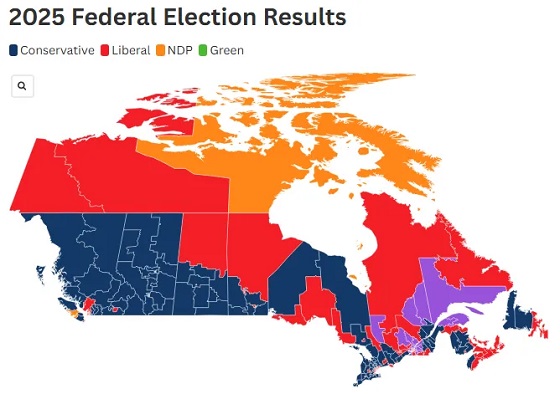
 2025 Federal Election1 day ago
2025 Federal Election1 day agoPost election…the chips fell where they fell
-
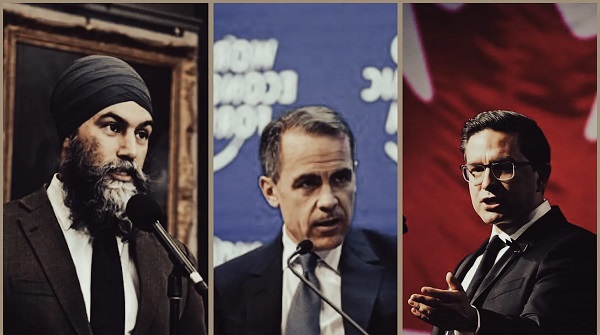
 2025 Federal Election9 hours ago
2025 Federal Election9 hours agoNDP Floor Crossers May Give Carney A Majority
-
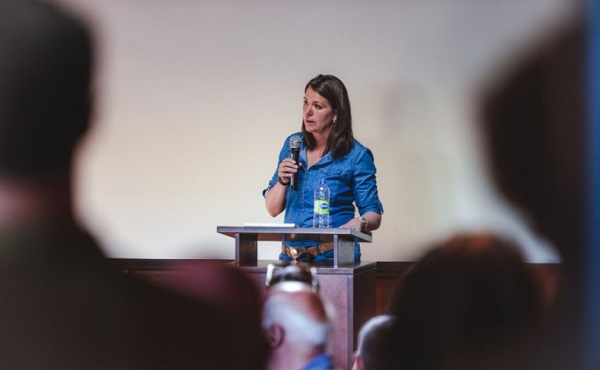
 Alberta19 hours ago
Alberta19 hours agoPremier Danielle Smith hints Alberta may begin ‘path’ toward greater autonomy after Mark Carney’s win
-
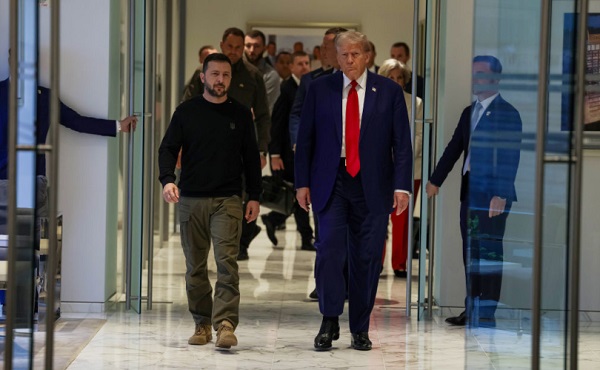
 Business4 hours ago
Business4 hours agoScott Bessent says U.S., Ukraine “ready to sign” rare earths deal


